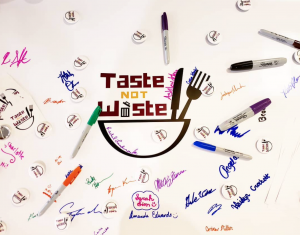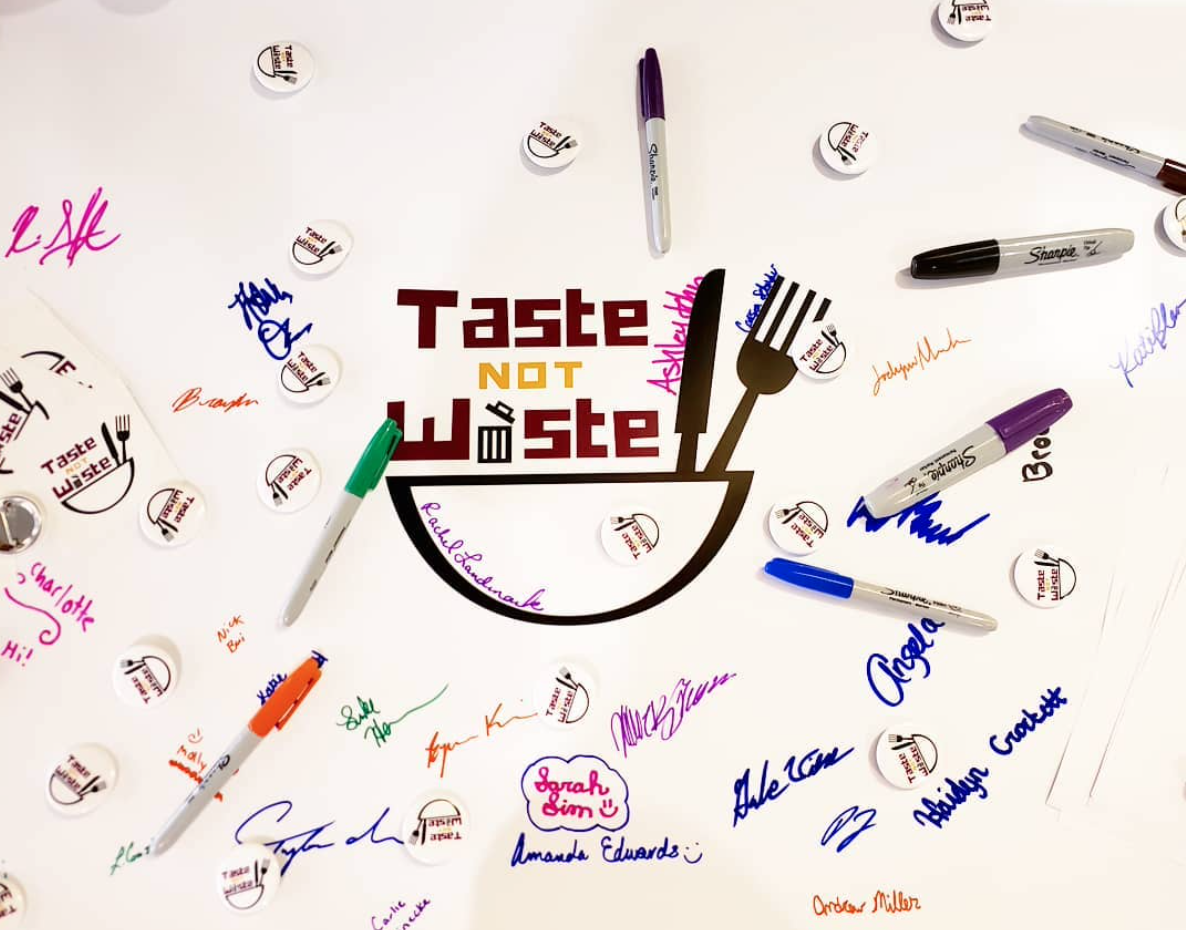Taste Not Waste is having a week of celebration from Monday, April 12 to Friday, April 16 after the fourth year of the program at Concordia.
So, what is Taste Not Waste? The Taste Not Waste program was a commitment from Concordia campus to try to reduce food waste by 50% within four years. The program started in 2016, and by April 2018, Concordia had reduced plate waste by 38% and was on track to hit 50% this year. It was meant to make people more mindful of the food that they are taking and the amount of food that ends up in the landfill.
“Food waste is a huge issue, and this initiative brings awareness that everyone must be mindful when it comes to what they are throwing out.” said Kayla Adamek, a history and museum studies and environmental studies major.

This year, Taste Not Waste looked different. In the past, Taste Not Waste conducted plate waste studies in Anderson Commons where the remaining food on patrons’ plates was weighed to measure how much food that was taken was being wasted. Taste Not Waste intern, Kelly Lorenz explained that this year, they have not been able to do the plate waste study and have instead been focusing on the green-to-go containers that are found primarily in the Maize. Earlier in the semester, there was a Taste Not Waste week where they pushed the marketing of sustainability.
Lorenz said that Concordia is one of the nation’s leaders for food waste reduction. This is shown by the 38% reduction in food waste, which was on track to hit 50% this year, had it not been for the pandemic. This upcoming celebration recognizes the passing of the four year date and the success Concordia saw as a campus.
There are a lot of plans in the works for this celebration. Lorenz and sustainability coordinator Jackie Maahs are working with dining services and are planning some themed meals. The goal is to have the favorite meals of Concordia campus. This year, the amount of stations open in Anderson Commons has decreased, and they are hoping to amp up dining services and serve all of the favorites. They are also planning to have some drawings and giveaways, as well as a social media campaign.
According to Maahs, the takeaway from Taste Not Waste is that the Concordia community can make a change. Reducing plate waste by 50% in four years was a large goal that Concordia was on track to hit and it shows the impact this community can make when they come together and intentionally work to reach a common goal.
To learn more about Taste Not Waste or sustainability at Concordia, visit the Sustainability page on Concordia’s website, or follow @cordsustainability on Instagram.

